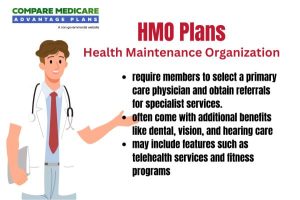




Is Aetna Medicare Advantage a Good Plan?
Is Aetna Medicare Advantage a good plan? Discover the answer as we explore its ratings, benefits, costs, and how it compares to competitors. Let’s dive in.
Key Takeaways
- Aetna Medicare Advantage plans boast an average star rating of 4.19, with many plans, like the National Group PPO and Pennsylvania HMO, achieving consistent 4.5-star ratings, highlighting their overall quality and performance.
- Approximately 70% of Aetna Medicare Advantage plans have a $0 monthly premium, making them financially attractive; however, members should be aware of potentially high maximum out-of-pocket costs, which can reach $9,250.
- Aetna offers a variety of plan types, including HMO, PPO, and HMO-POS, each providing different levels of flexibility and benefits, along with additional perks such as dental, vision, and hearing coverage.
Compare Plans In One Step!
Aetna Medicare Advantage Star Ratings

Star ratings are crucial when evaluating Medicare Advantage plans. Provided by the Centers for Medicare and Medicaid Services (CMS), these ratings range from 1 to 5 stars and reflect the quality and performance of the plans. Aetna Medicare Advantage plans have an impressive average star rating of 4.19, with a specific CMS score of 3.9 stars.
Aetna’s National Group PPO plan has stood out with a consistent 4.5-star rating for the past 13 years, showcasing its reliability and high performance in member experience. Additionally, the Pennsylvania HMO plan also achieved a 4.5-star rating, further emphasizing Aetna’s commitment to quality care.
However, Aetna’s customer satisfaction metrics, as reflected in various J.D. Power surveys, indicate mixed sentiment among members. While Aetna’s star ratings are commendable, the overall customer experience may vary by region and individual needs.
Understanding Aetna’s star ratings sets the stage to explore the pros and cons of their Medicare Advantage plans.
Pros and Cons of Aetna Medicare Advantage Plans
Weighing the Medicare advantage pros and cons of Aetna Medicare Advantage plans reveals that approximately 70% come with a $0 monthly premium, making them attractive to many Medicare beneficiaries.
These plans often include comprehensive coverage, such as medical, prescription drugs, and additional benefits, which can provide substantial savings compared to Original Medicare. Additionally, a Medicare Advantage plan can enhance the overall value of healthcare coverage, especially when considering the benefits of Medicare part options.
On the downside, Aetna’s maximum out-of-pocket costs for in-network plans can be as high as $9,250, which is generally higher than those of its main competitors. Additionally, members may face extra costs like copays, coinsurance, and deductibles. For example, a primary doctor visit may have a copay of $10, while a specialist visit could cost $45.
Overall, Aetna Medicare Advantage plans offer significant benefits, especially regarding low or no premiums, but potential higher out-of-pocket costs should be considered. Let’s break down these costs to provide a clearer picture of what to expect.
Cost of Aetna Medicare Advantage Plans

Aetna Medicare Advantage plans’ costs can vary widely, impacting your overall healthcare expenses. An estimated 82% of Medicare-eligible beneficiaries have access to a $0-monthly-premium Aetna plan, making it a cost-effective option for many. However, these plans do include other expenses such as copays, coinsurance, and deductibles, which can accumulate over time.
One significant factor is the maximum out-of-pocket cost for in-network care, capped at $9,250, which aligns with the federal limit. This cap ensures that you won’t face unlimited expenses, providing a degree of financial protection.
Let’s break down these costs further by examining monthly premiums, higher premiums, copays, coinsurance, and deductibles in more detail.
Monthly Premiums
Monthly premiums for Aetna Medicare Advantage plans can range from $0 to over $200, depending on the plan type and location. The availability of $0 premium plans makes Aetna an appealing option for many Medicare beneficiaries, especially since about 86% of these plans also include prescription drug benefits.
Factors influencing the b premium costs include the type of coverage provided and the region where you reside. For instance, the highest premium for Aetna Medicare Advantage plans can be $204, while the lowest is $0. This wide range allows for flexibility based on individual needs and financial situations.
Copays and Coinsurance
Aetna Medicare Advantage plans typically require copays for various services, which can vary significantly. For instance, a primary care doctor visit may have a copay as low as $10, while seeing a specialist might cost $45. These copays can add up, affecting your overall out-of-pocket costs.
Using in-network providers generally costs less in Aetna’s PPO plans, which can help manage expenses. Understanding these copays and coinsurance rates is crucial when budgeting for your healthcare needs.
Deductibles
Deductibles are another important consideration in Aetna Medicare Advantage plans:
- Only about 1% of Aetna’s plans offer a $0 drug deductible, meaning most members will face some out-of-pocket costs before their prescription drug coverage kicks in.
- The highest drug deductible for Aetna plans is $615.
- The lowest drug deductible for plans without a $0 deductible is $200.
To qualify for catastrophic coverage, a member must incur $2,100 in out-of-pocket spending. These deductibles can significantly impact your healthcare costs, so consider them when choosing a plan.
Types of Aetna Medicare Advantage Plans
Aetna offers over 500 Medicare Advantage plans nationwide, catering to various healthcare needs and preferences. These include most Aetna plans:
- HMO
- PPO
- HMO-POS
- Special Needs Plans
Each plan provides different types of coverage, including medical, prescription drugs, additional benefits, and Aetna’s plans.
Whether seeking comprehensive drug coverage or a plan tailored for veterans, Aetna has options to suit your needs. Here are the specifics of these plan types to help you understand which one might be the best fit.
HMO Plans

HMO plans from Aetna emphasize care coordination through a designated primary care provider. Enrollees work with in-network primary care providers to manage their healthcare needs, ensuring comprehensive and coordinated care.
This structure streamlines services, making it easier for members to receive necessary care without unnecessary complications. Staying within the plan’s network is essential to avoid higher costs.
Compare plans and enroll online

PPO Plans
Aetna’s PPO plans offer greater flexibility compared to HMO plans. Members can see any Medicare-accepting provider without needing a referral. This flexibility allows for more freedom in choosing healthcare providers and accessing services.
PPO plans are ideal for individuals who prefer more control over their healthcare decisions and don’t want to be restricted to a preferred provider organization network of providers.
HMO-POS Plans
HMO-POS plans from Aetna allow members to access out-of-network care at a higher cost, balancing the structured care of HMO plans with the flexibility of PPO plans. This makes the HMO POS plan an appealing option for many.
These many plans suit those who want coordinated care benefits but also need the option to seek out-of-network benefits when necessary.
Additional Benefits of Aetna Medicare Advantage Plans

Aetna Medicare Advantage plans go beyond basic medical and drug coverage by offering additional benefits that enhance overall healthcare. These include:
- Routine vision coverage
- Dental coverage
- Hearing coverage
- Perks like the Medicare Extra Benefits Card
- $0 copay for certain services
Aetna’s Resources for Living program assists members in finding home support, caregiver resources, or local activities, adding a layer of support beyond traditional healthcare. Here’s a closer look at some of these additional benefits.
Dental Coverage
Aetna Medicare Advantage plans often cover essential dental services such as checkups, cleanings, and X-rays. Coverage for more extensive dental work varies, so checking specific policy details is important.
Members can visit licensed dentists both in and out of network for routine dental care, providing flexibility in accessing dental services.
Vision and Hearing Coverage
Vision benefits in Aetna plans typically include annual routine eye exams and allowances for purchasing prescription eyewear. Aetna also covers hearing aids, fittings, and annual exams, ensuring comprehensive hearing care.
These benefits contribute to a well-rounded healthcare plan that addresses critical aspects of members’ health, along with the added benefits of preventive care.
OTC Benefits
Aetna Medicare Advantage plans offer over-the-counter (OTC) benefits, allowing members to purchase health and wellness products with a set allowance. These products include:
- Pain relievers
- Cold medications
- Other essentials
This enhances the value of Aetna plans by providing access to necessary health products without additional out-of-pocket costs. The over-the-counter benefit adds further value to the plans.
Comparing Aetna Medicare Advantage to Competitors

When evaluating Aetna Medicare Advantage plans, compare them to competitors like Humana, UnitedHealthcare, and Blue Cross Blue Shield. Key factors to consider include:
- Ratings data from CMS
- Pricing
- Plan availability
- Consumer experience
- Extra benefits.
Aetna’s plans are noted for their $0 premium options, making them cost-effective for many Medicare beneficiaries. However, customer satisfaction ratings and service quality can vary, influencing the overall appeal of these plans. Here’s how Aetna stacks up against specific competitors.
Aetna vs. Humana
Aetna Medicare Advantage plans are known for offering low premiums to a significant portion of beneficiaries, making them attractive. Humana’s plans are also popular but may offer different coverage options, impacting overall value for members.
When comparing these two providers, consider the specific benefits and best coverage details that matter most to you.
Aetna vs. UnitedHealthcare
UnitedHealthcare often boasts higher customer satisfaction ratings compared to Aetna. However, Aetna offers broader availability of $0 premium plans, a significant factor for cost-conscious consumers.
Both providers compete in the Medicare Advantage market, offering plans with different benefits and availability, so evaluate them based on your specific needs.
Aetna vs. Blue Cross Blue Shield
When comparing Aetna to Blue Cross Blue Shield, evaluate the variety of plan options and service areas. Aetna offers a wider range of Medicare Advantage plans catering to diverse healthcare needs.
Blue Cross Blue Shield has an extensive service area coverage, often rivaling Aetna’s presence in local markets. This comparison can help determine which provider best meets your healthcare requirements.
Customer Satisfaction and Service Quality
Customer satisfaction and service quality are vital aspects of any healthcare plan. Aetna Medicare Advantage plans generally have high customer satisfaction ratings, with a member experience rating of 3.88, indicating above-average satisfaction.
However, Aetna’s scores can be lacking compared to some competitors, such as UnitedHealthcare, known for its extensive provider network. Consider these factors when choosing a plan that meets your expectations for service quality.
Availability and Enrollment

Aetna Medicare Advantage plans are widely accessible, covering 43 states and Washington, D.C., ensuring that many Medicare beneficiaries can find a suitable plan. The availability of $0 premium plans makes Aetna an affordable option for many Medicare Advantage plans available.
To find a suitable plan with Aetna:
- Enter your ZIP code on Aetna’s website to view available options tailored to your location.
- Complete enrollment online or by calling a dedicated helpline.
- Note that the open enrollment period runs from January 1 to March 31.
This ease of access and enrollment makes Aetna a convenient choice for many looking to switch or start their Medicare Advantage coverage.
Summary
In summary, Aetna Medicare Advantage plans offer a variety of benefits that make them a strong contender in the Medicare Advantage market. With a wide range of plan options, including HMO, PPO, and HMO-POS, Aetna caters to diverse needs and preferences. The availability of $0 premium plans and comprehensive additional benefits such as dental, vision, hearing coverage, and OTC benefits adds significant value.
However, potential enrollees should be mindful of the higher out-of-pocket costs associated with some plans and the varying customer satisfaction scores. By carefully evaluating these factors and comparing Aetna’s offerings with those of competitors like Humana, UnitedHealthcare, and Blue Cross Blue Shield, you can make an informed decision about whether Aetna Medicare Advantage plans are the right fit for your healthcare needs.
Frequently Asked Questions
→ What is the average star rating for Aetna Medicare Advantage plans?
Aetna Medicare Advantage plans have an average star rating of 4.19, reflecting their strong performance in quality metrics. This indicates a high level of satisfaction and reliability in the services provided.
→ Are there any $0 premium Aetna Medicare Advantage plans available?
Yes, approximately 70% of Aetna’s Medicare Advantage plans offer a $0 monthly premium, providing a beneficial choice for many Medicare beneficiaries.
→ What types of plans does Aetna offer?
Aetna provides a range of Medicare Advantage plans, such as HMO, PPO, HMO-POS, and Special Needs Plans, to meet diverse healthcare requirements.
→ How can I enroll in an Aetna Medicare Advantage plan?
To enroll in an Aetna Medicare Advantage plan, you can visit Aetna’s website and enter your ZIP code to find available plans, or you may call their dedicated helpline for assistance. Remember that the open enrollment period is from January 1 to March 31.
→ What additional benefits do Aetna Medicare Advantage plans offer?
Aetna Medicare Advantage plans offer valuable additional benefits, including routine vision, dental, and hearing coverage, along with over-the-counter benefits and supportive programs like Resources for Living. These features enhance overall member well-being and access to vital services.
Have Questions?
Speak with a licensed insurance agent
1-833-641-4938
TTY users 711
Mon-Fri: 8am-9pm ET
ZRN Health & Financial Services, LLC, a Texas limited liability company

